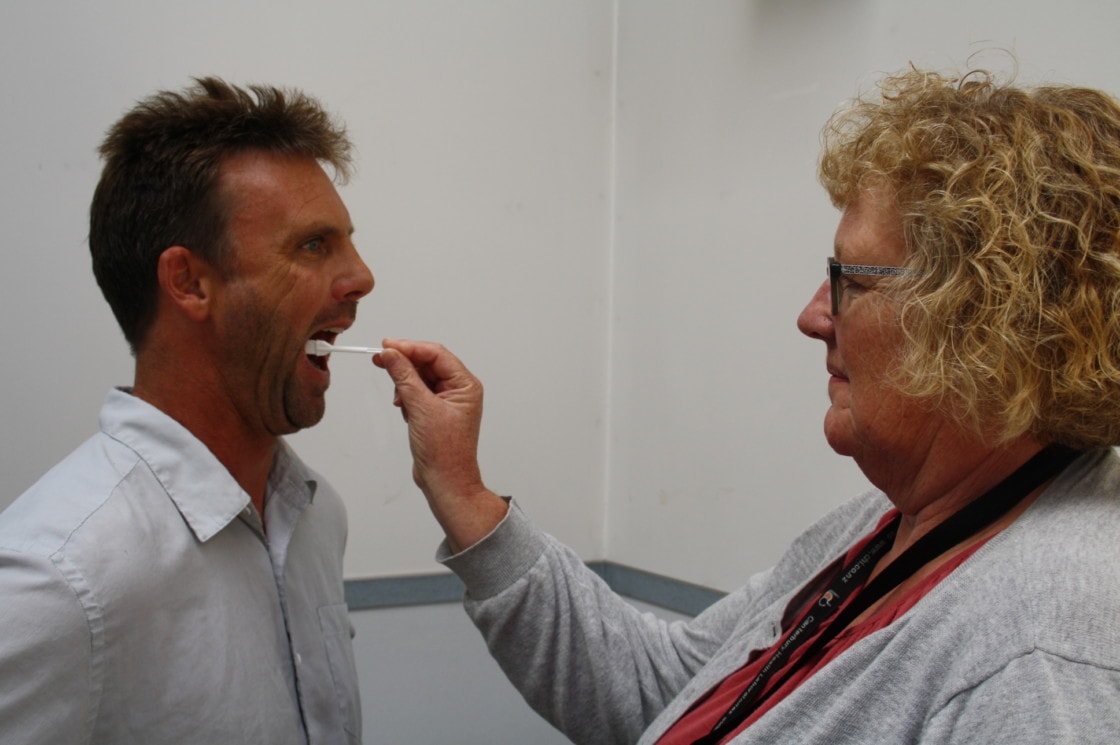Wednesday 3 March 2021Media release3 minutes to read
THIS IS AN ARCHIVED PAGE. The advice and information contained in this page may not be current and it should only be used for historical reference purposes.

Senior Scientists in the Toxicology and Workplace Drug Testing department at Canterbury Health Laboratories, Mark Lewis and Sharon Paterson, demonstrate taking a saliva sample for saliva drug testing
An easier and more efficient drug testing alternative to urine samples is now available for the first time in New Zealand through Canterbury Health Laboratories.
A saliva drug test, also known as an oral fluid or a mouth swab drug test, can replace traditional urine tests to detect recent drug use. Many workplaces use urine tests to detect drug use as part of their health and safety efforts. Typically, these are done at specific testing locations to make sure the sample is correctly gathered and not tampered with.
Canterbury Health Laboratories Head of Toxicology Grant Moore says the saliva test offers significant benefits for employers and is more convenient for those being tested.
“Employers can have their own swab kits and do it themselves on site rather than using an external testing agency. They can also directly observe the test.
“For those being tested it means they aren’t having to travel for their test and it is less invasive to collect a mouth swab than a urine sample,” says Grant.
Use of amphetamine-type substances, opiates, cannabis and cocaine within a preceding 24 hour period can be detected by the saliva test, depending on the substance.
“The advantage of testing saliva is that urine testing picks up drugs that have passed through the body whereas saliva registers drugs that may have just been taken but have not yet been fully processed internally.
“This means that, depending on an organisation’s employment policies, it could be used straight away if impairment was suspected or a workplace accident has occurred, and the test is sent away for testing with results within four to five days,” Grant says.

A swab collection kit for taking saliva samples for saliva drug testing
The screening test will indicate if a substance is detected. However, just as with urine testing, if a screening test result doesn’t come back as negative, it needs to be confirmed by an accredited laboratory.
Saliva drug tests are more common overseas, but Canterbury Health Laboratories is the first laboratory in New Zealand offering confirmatory testing for saliva/oral fluid tests. They also supply the swab collection kits for taking the samples.
“People want their loved ones coming home safely from work.
“By making drug screening easier and more convenient we hope we can help make workplaces safer for more Kiwis,” says Grant.
For further information on the saliva drug test kits and confirmatory testing by Canterbury Health Laboratories, contact info@workplacedrugtest.co.nz.
ENDS
Tags canterbury health laboratoriesdrug testinglabs
Back to Health News


